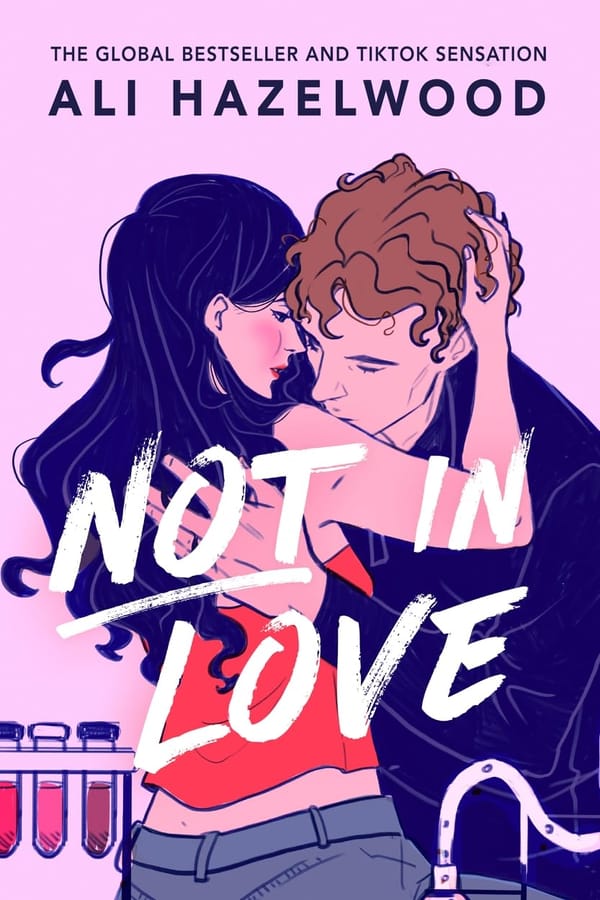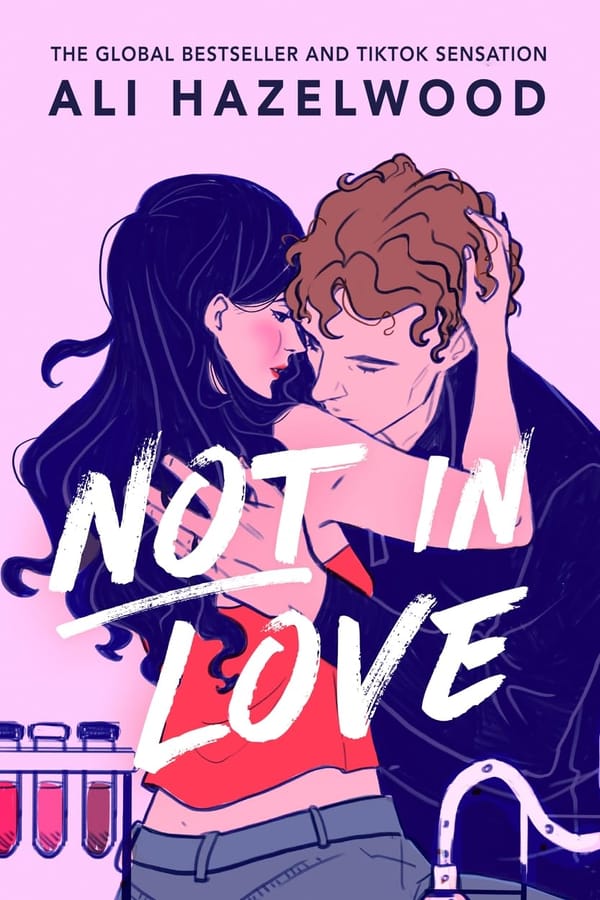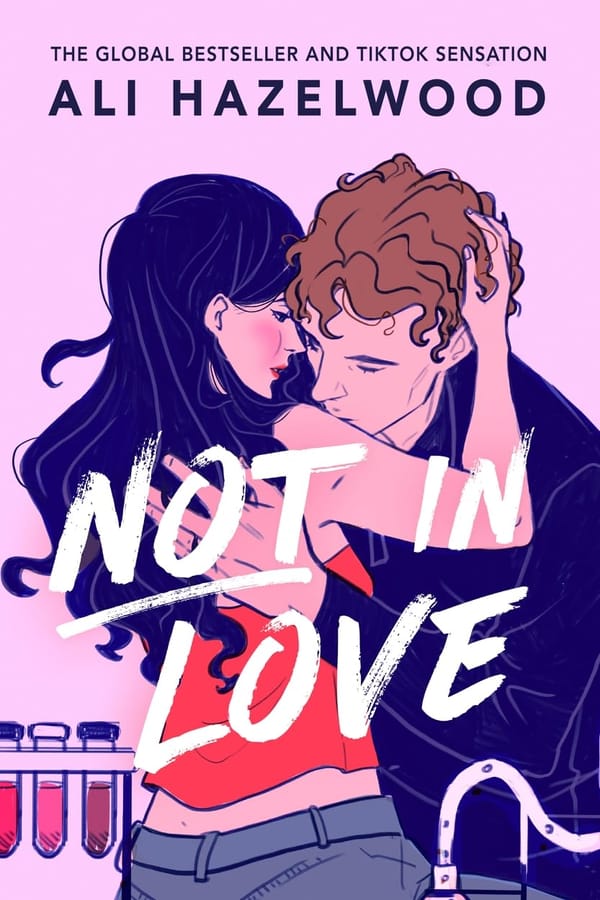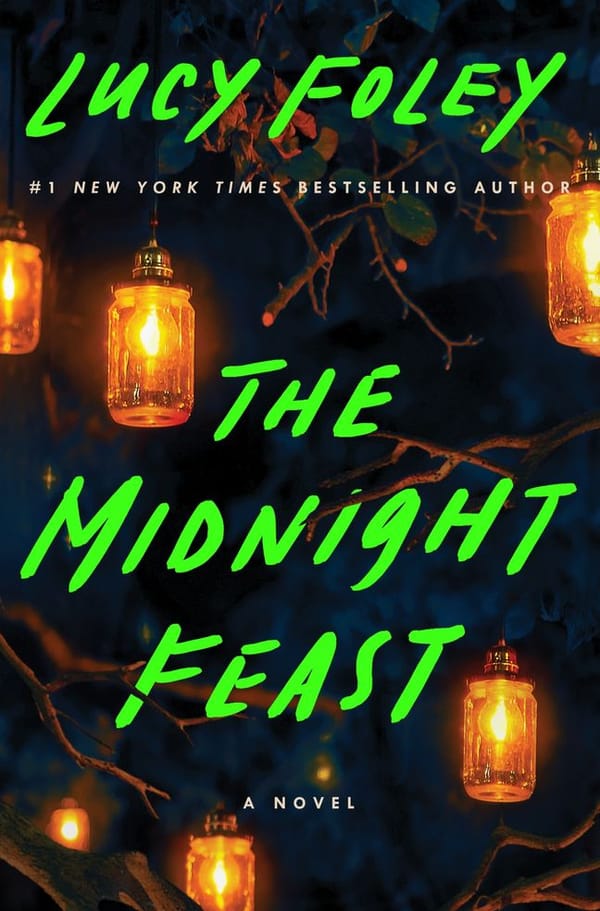Chapter 1: How to Solve Your Own Murder by Kristen Perrin
It’s one of those heavy summer evenings where the air feels so thick you could swim in it. When I surface from my journey on the Piccadilly Line, even the staleness of Earl’s Court Station feels like a breath of fresh air.

It’s one of those heavy summer evenings where the air feels so thick you could swim in it. When I surface from my journey on the Piccadilly Line, even the staleness of Earl’s Court Station feels like a breath of fresh air. By the time I make it up the three flights of stairs to street level, I’m winded and rummaging through my backpack for my water bottle. All I find is a Thermos full of stale coffee from this morning.
Slim men in suits sail past me like urban gazelles while I gulp down the dregs. It’s as disgusting as I anticipated it might be, but I need the caffeine. My phone buzzes and I pull it from my pocket, resisting the urge to check my email and instead answering the call flashing across the screen.
“Jenny.” I let all the exhaustion finally leak out into my voice. “Please tell me you’re on your way. I can’t face Mum’s basement again without backup. Last week when I was cleaning it out there were spiders. Huge ones.”
“I’m already here,” she says. “But Annie, I’m staying on the front step until you arrive, because I don’t feel like being dragged around the house by your mum while she tells me which walls she’s knocking down.”
“Good call. Also, I don’t think she’s allowed to knock down walls in that house; we don’t even own it.”
“That’s a good enough reason then. And I imagine she’s on one of her design rampages, with her private exhibition at the Tate looming.”
I wince. Mum’s a painter—quite a famous and successful one actually. Or she was, until interest in her work dried up. Unfortunately, this career slump coincided with the loss of the fortune she made from her earlier work, so for most of my life we’ve walked a fine line between living like squatters and being frugal because it’s bohemian and arty. “I mean, Mum’s design rampages will keep me from endlessly checking my empty inbox, so I’m actually on board with whatever she wants me to do. I have a backpack full of paint swatches and lots of pent-up frustration. I’m ready to tackle this basement. Except for the spiders—those have your name on them.”
“Aw, my very own army of spiders,” Jenny coos. “Just what I’ve always wanted.” She pauses for a beat, as if she’s considering her next words carefully. “Why is an empty inbox bothering you? Have you sent out more writing?” Jenny’s been my best friend since we were nine. Last month I was made redundant from my low-paying office job, and she stepped up as the perfect mix of shoulder to cry on and motivational life coach. She made a great case for me using this as an opportunity to follow my dreams and pursue a career writing murder mysteries, because not every struggling writer has a mum with an eight-bedroom house in central London who’ll let you live rent-free in exchange for help with odd jobs.
It’s not the typical setup for a twenty-five-year-old who’s had to move back home, though it does come with the baggage of dealing with Mum’s moods. Since that’s something I’d successfully escaped by moving out in the first place, this does feel like a step backward. But I have my own floor in the Chelsea house, and the place is falling apart in a rather romantic way. My childhood bedroom has its own chandelier, dust-covered and missing several of its crystals, and it casts a ghostly light over the antique typewriter I found in one of the cupboards. I don’t actually write with it; I just sort of clunk the keys now and then for some atmosphere. It has a tartan-patterned plastic case and a 1960s vibe, which I love.
“I started sending out my latest manuscript to some literary agents,” I say, and bite my lip when Jenny doesn’t reply. “It’s only been a week since I emailed the first few.” I wipe the sweat from the back of my neck. I’m walking up Earl’s Court Road, darting across traffic where I can. My backpack weighs a ton, but the library was having a sale and I couldn’t resist. And I can justify buying seven hard copies of Agatha Christie books as research. “But I’m already starting to feel like my book is actually terrible.”
“It’s not terrible.”
“No, it really is. I just couldn’t see it until I actually sent it to people to read.”
“But you were so confident about this one!” Jenny says. I can hear the bubble in her voice; she’s getting ready to go into cheerleader mode.
I cut her off before she can really get going. “I was, but I’m wiser now. You know when a toddler randomly walks up to you, and the kid’s mum is beaming at it and assuming you’ll find it just as cute as she does? But the toddler’s got a gooey nose and old food stuck to its clothes?”
“Ugh, yeah.”
“I’m that kid’s mum, and I’ve just sent it out into the world with a gooey nose, thinking people will see it the same way I do.”
“So wipe its face. Introduce it to people when it’s cleaner.”
“Yeah, I think that’s what editing is for.”
I hear Jenny suck in a breath on the other end of the line. “Annie, are you telling me you sent a book out to literary agents and you didn’t even edit it?” Jenny laughs long and hard, and it’s infectious. I can’t help it—I’m smiling broadly as I turn onto Tregunter Road.
“I just got so excited!” I wheeze, letting a laugh escape. “I did a thing, you know? I wrote many words, and they all culminated with THE END.”
“Yes. And I’m proud of you. But I think you should at least let me read it before you send it out to any more agents.”
“What? No!”
“If you won’t let me read it, why are you sending it out to strangers?”
“Hanging up now, I’m nearly at the house.” I shuffle to the end of the road, where Jenny is sitting on the steps waiting for me.
Mum’s house sits miserably at the end of a posh row of terraces, like Halloween attending a garden party. I wave to Jenny as she dusts off her chic skirt and runs a hand through her long black hair. Her fashion sense is impeccable, and I smooth a hand down my voluminous summer dress and reconsider having bought this monstrosity. For some reason, I just seem drawn to dresses that make me look like a Victorian ghost. My pale skin and blond curls only contribute to this impression, so I might as well stop fighting it.
Like Mum, Jenny and I studied art at Central Saint Martins. Her parents moved to London from Hong Kong when Jenny was a baby and are some of the loveliest people you’ll ever meet. I’d never tell Mum, but sometimes when I craved a nice stable atmosphere that included a dad and siblings, I’d head to Jenny’s after school instead of going home, even when Jenny was at tennis lessons or out somewhere. Her parents would let me sit and do homework and I’d chat with the whole family while the smells of actual home cooking filled my nose.
When Jenny graduated, she landed so firmly on her feet that she’s already in dream-job territory. She turned down a job in set design at the Royal Albert Hall to become part of the team that does the window displays at Harrods. She lives for it, and creates masterpieces, especially at Christmas.
“Well,” she says, linking her arm through mine, “should we see what your mum’s basement has in store for us?”
We both take a moment to stare up at the house. Two sets of grimy bay windows frame the large stone steps leading to the front door. A long time ago the door must have been green, but the paint has been shedding itself in layers over the years, and the wood’s a bit warped. I do love it, though. Four stories of whitewashed former grandeur loom upward, and most of the old velvet curtains still shroud the windows.
“Thanks for doing this with me,” I say. I’m not even sure what I’m thankful for, because this is the house I grew up in. And even though it was just Mum and me, it’s always been a happy place to be. I think I’m just grateful that Jenny shows up when I call her, even when the call is just something like, Hey, want to clean out an old basement with me?
“No problem,” Jenny replies. “And you already did the hard bit last week, right?”
“Ugh, don’t remind me. There were so many boxes and trunks. And the removal men I hired were complete cowboys; they just threw everything into their van. I think I heard glass shatter on a few occasions. But I signed my name on the dotted line and had it all shipped over to Great Aunt Frances’s weird mansion in Dorset. I hope she doesn’t get too angry when a bunch of her old junk shows up unexpectedly, but Mum is insistent on converting the basement into a studio.”
“Frances is the aunt who technically owns this house, right?”
“That’s the one.”
“Why haven’t I heard more about her? Or met her?” Jenny’s voice is open, but there’s a small hint of a sting to her tone, as if she suspects I’ve left her out of something important.
“Don’t take it personally,” I say. “I’ve never met her either. Apparently she doesn’t like London, or traveling. And she’s so wealthy that she doesn’t bother checking up on this place. I think she even sends Mum a bit of money each week. It’s sort of silly and old-fashioned, like a weekly allowance from a parent, but Mum’s not too proud to take it. Once I asked Mum why Great Aunt Frances sends money, and she just brushed it off and shrugged.”
“Huh,” Jenny says, and I can see her chewing on all this new information, not ready to let it go. “This sounds macabre, but what happens when she dies? Does she have kids who’ll kick you guys out?”
“Nope, Mum is set to inherit everything.” I brace myself for Jenny’s reaction, because this is the sort of fact that your best friend of sixteen years should probably already know. And I wasn’t keeping it from her; it’s just something that honestly never came up. Great Aunt Frances is so distant that my default mentality is that the house really is ours. I forget she exists until I have to do something like sort through all her old stuff.
But Jenny just whistles under her breath. “Family money,” she says, rolling her eyes. “I thought the concept was fake, like something that’s just in movies.”
We push open the stiff front door—unlocked, of course. Mum never locks it; she says if someone’s going to choose a house on Tregunter Road to rob, it won’t be ours. My eyes sweep over the exposed brick of the hallway, half the plaster still lingering in patches. Mum’s right—any burglar would take one look at the layers of peeling wallpaper in here and determine there’s nothing worth stealing. They’d be wrong, though, because most of Mum’s art is worth an absolute fortune. She’d never sell any of the early work she still has around the house, though; she’s far too sentimental about it.
“In here!” Mum’s voice echoes from the kitchen, which is deep in the back of the house. We tiptoe through two vast rooms that most people would use as sitting rooms but that Mum uses as studio space. Huge canvases lean against the walls, and the floor is covered in paint splatters. Mum gave up using dust sheets for the floors decades ago. The light that comes through the two sets of bay windows is yellow and musty, fighting its way through at least twenty-five years’ worth of city grime. Never once in my life do I remember Mum having the windows cleaned, but I’m so used to the light being this way that I think if she did, it would feel too harsh and shiny—like taking your sunglasses off on a bright summer’s day.
Mum has swept her ash-blond hair on top of her head with a green bandanna and has a nearly empty glass of red wine in her hand, with two full ones waiting on the table. She’s hovering over the massive range, sautéing onions, which is her sole culinary skill. Something’s in the oven, but I suspect it’s ready-made and soon to be garnished with the sautéed onions.
“There’s post for you on the table,” Mum says without turning around.
“Hello to you too, Laura,” Jenny says to Mum. Her tone is teasing, but Mum looks a bit chastened as she turns around and gives Jenny a quick kiss on the cheek.
She moves to say hello to me, but instead hands me the nearly empty glass she’s holding and then takes a full one from the table.
I taste gas fumes on the back of my tongue, but Mum beats me to it. “Cooker’s gone out, just a sec.” She lights a long match from the ring under the frying pan, then twists a knob on the cooker to the off position and wrenches open the oven door. The cooker’s so old you’ve got to lean all the way inside and light it with an actual flame, risking certain death in the process. I know better than to bring up replacing it, because it’s a discussion we’ve had too many times over the years. Mum thinks it’s retro and cool. I, on the other hand, work hard not to think of Sylvia Plath every time I look at it.
I slump into the hard wooden chair next to my bag and pick up the thick envelope with my name on it. My heart pounds for a second, because I recently entered several fiction-writing competitions. But no one has replied by post to those for years; it’s all online these days. My brain is just doing silly things with the expectation that someone might notice me for something I wrote. I throw back the remaining swig of what is most certainly supermarket-brand table wine. It already tastes like a headache.
I slide open the heavy flap of the envelope and pull out a letter printed on headed paper:
Miss Annabelle Adams,
Your presence has been requested at the offices of Gordon, Owens, and Martlock LLC for a meeting with your great aunt, Ms. Frances Adams. Ms. Adams would like to discuss the responsibilities that will come with being sole benefactor of her estate and assets.
I pause there. “Wait, this is from Great Aunt Frances’s solicitor,” I say. “Looks like he mislabeled this letter, and it was supposed to say Laura. It’s about the inheritance.”
Jenny leans over my shoulder and skims the letter. “It does say great aunt,” she says, and points to the words on the page. “That doesn’t seem like a mistake.”
“Oh, she didn’t,” Mum snaps. She crosses over to the table and snatches the letter out of my hand. She stares at it long enough for the onions to give off a burned caramel smell, then tosses the letter onto the table and returns to the stove. Mum moves the cast-iron frying pan off the hob before the whole thing catches fire.
Jenny mumbles the rest of the letter’s contents as her eyes scan the typeface again. “Please present yourself at the offices of blah blah…it’s just instructions for the meeting. It’s in a couple of days, somewhere in Dorset called Castle Knoll. Oh my God,” she whispers, “an estranged aunt in a sleepy countryside village? A mysterious inheritance? This is a serious case of life imitating art.”
“I’m sure this is meant for Mum. Apparently Great Aunt Frances is superstitious to the extreme, so I doubt she’d just change her mind about something like this and disinherit Mum. Though actually,” I add slowly, “given the stories I’ve heard about Great Aunt Frances, this might be the kind of thing she’d do.” I look at Jenny’s awestruck expression and decide that I owe her a real deep dive into the weird background of Great Aunt Frances. “It’s family lore,” I say. “I’ve really never told you?” Jenny shakes her head and sips from the remaining glass on the table. I look over at Mum. “Do you want to tell the story of Great Aunt Frances? Or shall I?”
Mum goes back to the oven and wrestles with the door again, pulling out an aluminum tray of something unidentifiable. She takes the cast-iron frying pan and scrapes the singed onions onto the top of it, grabs three forks from the basket where she keeps loose cutlery, and sets the whole thing between us, forks stuck in at odd angles. Then she sinks into a chair and takes another drink of wine, shaking her head at me slightly.
“Okay then,” I say, and I try to put on my best storytelling voice. Jenny takes the wine bottle and fills my glass. “Great Aunt Frances was sixteen, and it was 1965. She and her two best friends went to a country fair and had their fortunes read. Great Aunt Frances’s fortune came out something like this: You’re going to be murdered, and end up a pile of dry bones.”
“Ooh, very over the top, I love it,” Jenny says. “But if you’re going to write mystery novels, Annie—and I say this with all the love in my heart—you need to work on your delivery.”
Mum has the letter again, and studies it as if it’s evidence of some crime. “That wasn’t the fortune,” she says quietly. “It was: Your future contains dry bones. Your slow demise begins right when you hold the queen in the palm of one hand. Beware the bird, for it will betray you. And from that, there’s no coming back. But daughters are the key to justice, find the right one and keep her close. All signs point toward your murder.”
I stab one of the forks into the thick cream of what I suspect is potatoes dauphinoise from the Tesco freezer section. “Right. Anyway, Great Aunt Frances has spent her whole life convinced that this is going to come true.”
“That’s…I can’t figure out if that’s tragic or very savvy of her,” Jenny says. She turns to Mum. “So, Annie’s really never met this lady?”
Mum sighs and picks at the onions. “Mostly we just let Frances live in her big house and get on with things.”
“Wait, so you have an aunt with a country estate and you just ignore her?”
Mum waves a hand to swat Jenny’s comment away. “Everyone ignores Frances. She’s nutty. So much so that she’s a local legend—the weird old lady with a huge country house and piles of money, just digging up dirt on anyone who crosses her path in case they might turn out to be her murderer.”
“So are you going to call this solicitor about the mix-up?” I ask.
Mum pinches the bridge of her nose and hands me the letter. “I don’t think it is a mix-up. I’d come with you to Dorset, but that date is deliberate.”
I look at it again. “Your show at the Tate,” I say slowly. “She’s trying to make sure you can’t come?”
“Frances may be nutty, but she’s very calculating. And she likes to play games.”
“Okay,” I say. My shoulders sag at the thought of missing Mum’s Tate exhibition, but it looks like this meeting concerns our livelihood. I’ll just have to hope the opening goes well, so that there will be others. “But then, why me?”
Mum lets out a long hiss of air before she speaks. “She lives her life by that fortune, and for years I was her sole benefactor because of that line—but daughters are the key to justice. I’m the only daughter in her family; my father was Frances’s older brother.”
“The second part of the line,” I muse. “Find the right one and keep her close.”
Mum nods. “It looks like Frances has decided that I’m not the right daughter anymore.”





